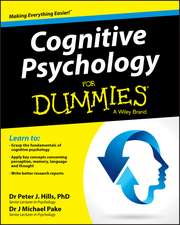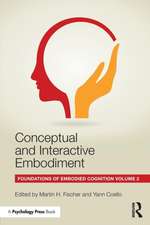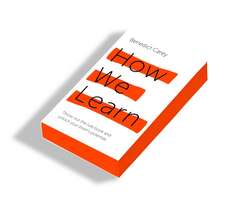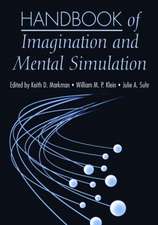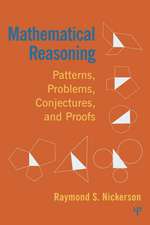Handbook of Cognitive Neuropsychology: What Deficits Reveal About the Human Mind
Autor Brenda Rappen Limba Engleză Paperback – 14 dec 2001
Preț: 440.93 lei
Preț vechi: 559.99 lei
-21% Nou
Puncte Express: 661
Preț estimativ în valută:
84.45€ • 87.00$ • 70.74£
84.45€ • 87.00$ • 70.74£
Carte tipărită la comandă
Livrare economică 22 februarie-08 martie
Preluare comenzi: 021 569.72.76
Specificații
ISBN-13: 9781841690445
ISBN-10: 1841690449
Pagini: 668
Dimensiuni: 178 x 254 x 33 mm
Greutate: 1.16 kg
Ediția:1
Editura: Taylor & Francis
Colecția Psychology Press
Locul publicării:Oxford, United Kingdom
ISBN-10: 1841690449
Pagini: 668
Dimensiuni: 178 x 254 x 33 mm
Greutate: 1.16 kg
Ediția:1
Editura: Taylor & Francis
Colecția Psychology Press
Locul publicării:Oxford, United Kingdom
Cuprins
Part 1. Foundations. M. Coltheart, Assumptions and Methods in Cognitive Neuropsychology. O. Selnes, Contributions from the Study of Deficits to Our Understanding of Brain Function: A Historical Overview. Part 2. Objects. M.J. Riddoch, G. Humphreys, Recognizing and Identifying Objects. E. de Haan, Face Recognition. Part 3. Attention. C. Umilta, Mechanisms of Attention. M. Farah, Consciousness. Part 4. Words. A. Hillis, The Organization of Lexical Knowledge. W. Badecker, Allen, Morphology: The Internal Structure of Words. B. Rapp, J. Folk, Reading Words. M. Tainturier, B. Rapp, Spelling Words. L. Nickels, Spoken Word Production. Part 5. Sentences. R. Martin, Understanding Sentences. R. Berndt, Producing Sentences. T. Gollan, J. Kroll, Bilingualism. Part 6. Memory. A. Parkin, Memory Systems. J. Shelton, A. Caramazza, Semantic Categories. D. Schacter, C. Dodson, Constructive Processes in Memory. Part 7. Space, Time, Numerosity and Music. M. Noel, Numerical Cognition. I. Peretz, Musical Cognition. M. McCloskey, Spatial Frames of Reference. J. Mangels, R. Ivry, Temporal Processing. Part 8. Actions and Plans. L. Buxbaum, B. Coslett, Motor Programming and Execution. G. Humphreys, Planning and Executing Complex Action Sequences. Part 9. Future Directions. M. McCloskey, Future Directions.
Recenzii
"The study of cognitive deficits provides some of the most compelling data concerning the structure and function of the human mind. This admirable book explains why. Its chapters, by top researchers in cognitive neuropsychology, summarize the state of the art in all of the major domains in the field." - Gary Dell, University of Illinois at Urbana-Champaign
"A state-of-the-art collection from some of the field's most distinguished scientists. The Handbook of Cognitive Neuropsychology is invaluable to researchers inside and outside of this area and to those who are interested in the latest word on research on mind and brain." - Steven Pinker, Peter de Florez Professor, Department of Brain and Cognitive Sciences, MIT, and author of How the Mind Works
"The volume is exceedingly thorough and well-written, and it is highly recommended for upper-division undergraduates through researchers in cognitive psychology." - Choice
"This handbook fills a niche in the neuropscyhology literature. It also is a highly recommended volume for cognitive psychologists because much can be learned about normal psychological processes from the study of neurologically impaired populations." - Richard A. Chechile, in the Journal of Mathematical Psychology
"A state-of-the-art collection from some of the field's most distinguished scientists. The Handbook of Cognitive Neuropsychology is invaluable to researchers inside and outside of this area and to those who are interested in the latest word on research on mind and brain." - Steven Pinker, Peter de Florez Professor, Department of Brain and Cognitive Sciences, MIT, and author of How the Mind Works
"The volume is exceedingly thorough and well-written, and it is highly recommended for upper-division undergraduates through researchers in cognitive psychology." - Choice
"This handbook fills a niche in the neuropscyhology literature. It also is a highly recommended volume for cognitive psychologists because much can be learned about normal psychological processes from the study of neurologically impaired populations." - Richard A. Chechile, in the Journal of Mathematical Psychology






